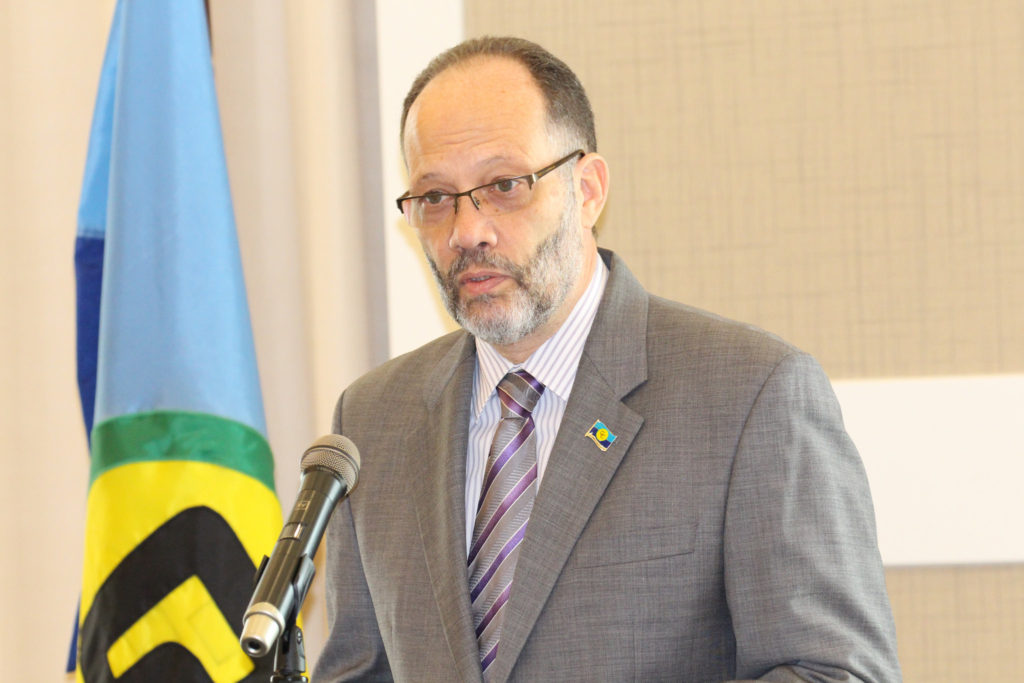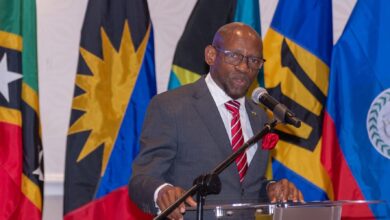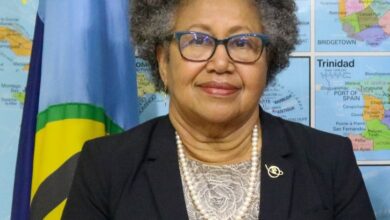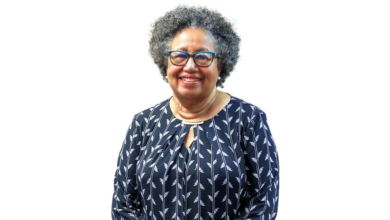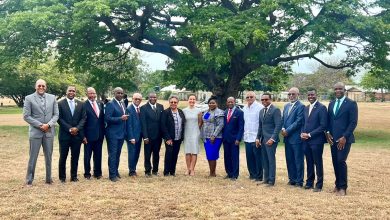REMARKS
BY
the SECRETARY-GENERAL
OF
THE CARIBBEAN COMMUNITY (CARICOM)
AMBASSADOR IRWIN LAROCQUE
ON THE OCCASION OF
THE TWENTY-FOURTH REGULAR MEETING OF
THE COUNCIL FOR
FOREIGN AND COMMUNITY RELATIONS (COFCOR)
Via videoconference
6-7 MAY 2021
- Honourable Eamon Courtenay, Minister of Foreign Affairs of Belize, and Chairman of the Council for Foreign and Community Relations (COFCOR);
- His Excellency Dr. Claude Joseph, Prime Minister (a.i.) and Minister of Foreign Affairs and Worship of the Republic of Haiti, and Outgoing Chair of the COFCOR;
- Foreign Ministers of the Caribbean Community and other Heads of Delegations;
- Ambassador Colin Granderson, Assistant Secretary-General Foreign and Community Relations;
- Distinguished Delegates and Staff of the CARICOM Secretariat.

I welcome you all to this Twenty-Fourth Meeting of the Council for Foreign and Community Relations (COFCOR). It is most unfortunate that we are once again unable to meet in person. However, I have no doubt meeting virtually will not hinder our ability to have meaningful discussions that redound to the advancement of the Community’s interests.

I wish to extend a special welcome to Minister Eammon Courtenay as Chair of the COFCOR. I pledge my full support and that of the staff of the Secretariat to you during your term. I must also express appreciation to Minister Joseph for his tenure over what has proven to be an extremely eventful year for the Community. Minister Claude Joseph we collectively thank you.
As we come together once more to deliberate on issues of strategic importance to the Community, the crippling, negative effects of the COVID-19 pandemic have challenged and still continue to challenge our very way of life. Our countries are struggling to cope socially, economically and financially.
In the coming months, we face the annual Atlantic hurricane season which adds another layer of urgency for us all to unite in our efforts towards building resilience and sustainable development.
As we meet here today, St. Vincent and the Grenadines is in the throes of a battle against a volcano that has uprooted one fifth of the population, made one-third of the country uninhabitable and destroyed a significant percentage of its agriculture. Barbados has also been adversely affected by the ashfall from the eruptions.
Our Community has come together to render assistance to these Member States in a demonstration of our unity.
We must continue in this vein, as we advocate for our interests in an international community that does not always acknowledge our obvious inherent constraints and vulnerabilities.
Our very existence is threatened by climate change, including the increasingly worrying rise in global temperature.
Our recovery from the effects of the pandemic is being hindered by inadequate access both to vaccines and to concessional development financing.
The continued arbitrary blacklisting of some of our Member States, and the resulting de-risking and denial of correspondent banking facilities are threats to the economic security of the affected countries.
These are issues we face not only today, but also for the foreseeable future. That reality emphasises the need to act in concert.
We continue to coordinate our Foreign Policy because we accept that our collective strength and advocacy must drive our efforts to move the international community to align with us on matters of critical importance to our well-being.
We have seen results of our efforts. Who can forget the role played by our Community at COP 21 to secure the Paris Agreement on Climate Change?
Our Development Partners and International Financial Institutions are increasingly accepting that the criterion of GDP per capita should be re-examined as the determining factor for concessional development financing.
Third States and multilateral agencies have recognised the imperative of seeking out CARICOM as a grouping, as our stature has risen.
The Community’s relations with a number of key Development Partners, such as Canada, Mexico, the United Kingdom and the United States to name but a few have been strengthened. The new United States Administration has engaged with us less than six months into their term.
We are in discussions with Canada and Mexico regarding summit meetings with our Heads of Government by the end of the year.
We have also extended our outreach by strengthening relations with Africa, and discussions are underway for an inaugural Summit between the African Union and the Community.
The Prime Minister of India engaged with our Heads of Government for the first time in 2019.
In extending thanks for the vaccines provided to Member States, I express the Community’s deep sorrow at the tragic situation with which India is grappling at this time.
The esteem in which our Region is held was highlighted at the United Nations when 185 of 193 countries voted in 2019 for St. Vincent and the Grenadines to gain a seat on the Security Council.
Further, the UN Secretary-General has been one of our staunchest supporters and advocates on issues affecting the Community and other Small Island and Low-lying Coastal Developing States.
Honourable Ministers, our heightened profile as a Region is at a time when we are facing a world where major actors are showing a decreasing interest in a collective approach to global problems. This is an era where the multilateral architecture has been under increasing strain even as there have been positive signs from the new US Administration.
Geopolitical competition in our multipolar world has increased, as well as the exercise of state power by the powerful to the detriment of international law. This is not an encouraging outlook for our countries.
CARICOM, as small states, must therefore rely more than ever on focused, organised and coordinated diplomacy. The Community must bolster its relations with like-minded states and continue to advocate for multilateralism.
This calls for even greater efforts at coordination of our foreign policy, as there are areas where there could be improvement.
As I reflect on the last 10 years, one of my enduring memories will be of the rich discussions during retreats at COFCOR. They were enlightening and demonstrated the high calibre of the people who seek our Community’s interest in the global arena.
I leave with you the thought that this Council, the only one in our Community that meets in formal session once a year, should have two formal sessions, given the rapidly changing international landscape.
In closing I want to recognise Assistant Secretary-General Colin Granderson for the excellent work that he and his team continue to do. Ambassador Granderson, I thank you
Ministers I, thank you.

